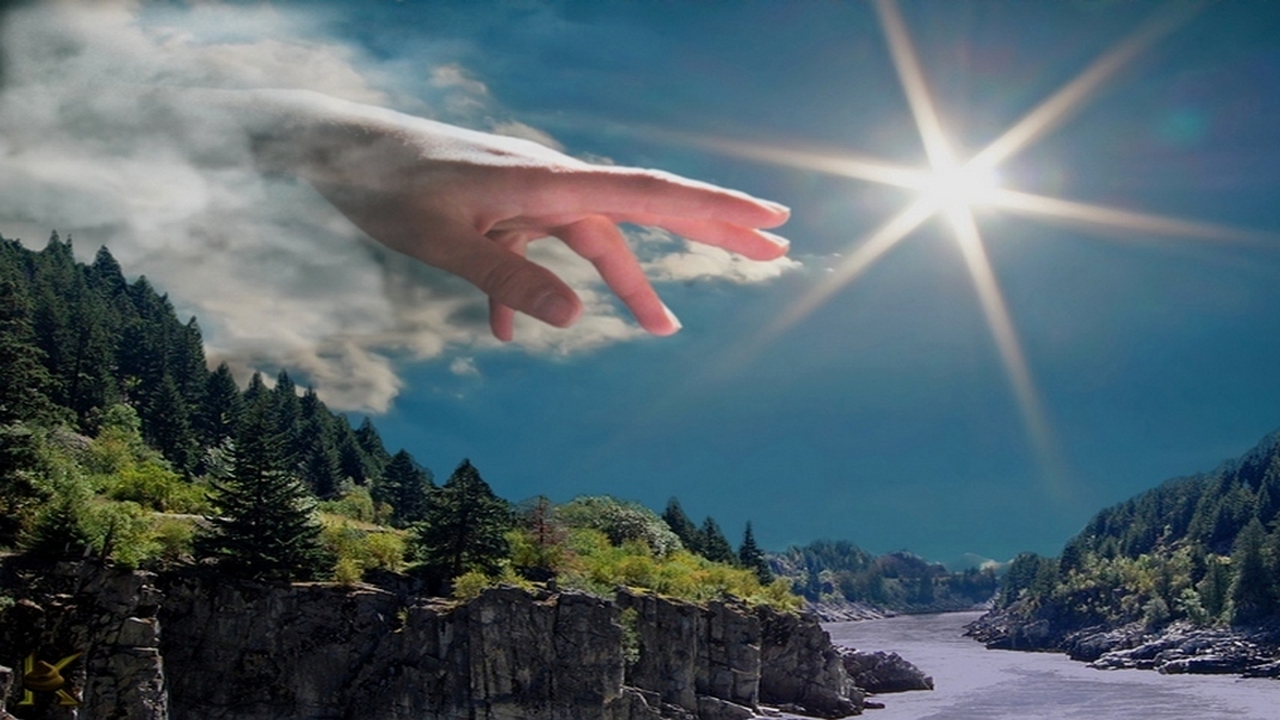Author’s note: This article might be controversial to some, but contention is not my intention. If you agree with me, wonderful. If you disagree feel free to leave a comment giving your reasons and argument. I’m busy, but I will reply. If your argument is convincing then I might change my mind, but if not then I probably won’t. In the end we might just have to disagree but still be friends. At least that’s my hope.
Many members of the church I belong to, the Church of Jesus Christ of Latter-day Saints, believe that God is subject to physical laws or that he perfectly understands and obeys the physical laws (physics, chemistry, mathematics, etc.) of the universe. This is a common belief, but it lacks scriptural support.
Instead, God is the author of law. Law does not exist independently of God.
Consider the following:
All kingdoms have a law given; And there are many kingdoms; for there is no space in the which there is no kingdom; and there is no kingdom in which there is no space, either a greater or a lesser kingdom. And unto every kingdom is given a law; and unto every law there are certain bounds also and conditions. All beings who abide not in those conditions are not justified. For intelligence cleaveth unto intelligence; wisdom receiveth wisdom; truth embraceth truth; virtue loveth virtue; light cleaveth unto light; mercy hath compassion on mercy and claimeth her own; justice continueth its course and claimeth its own; judgment goeth before the face of him who sitteth upon the throne and governeth and executeth all things. He comprehendeth all things, and all things are before him, and all things are round about him; and he is above all things, and in all things, and is through all things, and is round about all things; and all things are by him, and of him, even God, forever and ever. And again, verily I say unto you, he hath given a law unto all things, by which they move in their times and their seasons;
Doctrine and Covenants 88:36–42
You see, God is the great lawgiver, and in a sense that means more than simply the giver of moral laws or commandments. He is also the giver of the laws of physics, chemistry, and so forth.
Gospel Scholar Susan Easton Black, held this understanding. She wrote for instance:
Joseph Smith did not give self-existing law—which does not think, plan, or have purpose and also does not have body, parts, or passions—credit for the uniformity and order in the universe. Rather, he taught that the universe is governed and upheld by a powerful God who has body, parts, and passions and who is in the form of man. “If the veil were rent today, and the great God who holds this world in its orbit, and who upholds all worlds and all things by his power, was to make himself visible . . . you would see him like a man in form—like yourselves.”
God takes credit not only for the movement of the heavenly bodies but also for the physical changes that take place above the earth in the atmosphere, on the earth, and in the earth itself. For example, since he is responsible for creating natural law, he is ultimately responsible for the rain and snow and for the budding and blossoming of plants. He told William Marks and Newel K. Whitney to “settle up their business speedily and journey from the land of Kirtland, before I, the Lord, send again the snows upon the earth.” He also told them, “will I not make solitary places to bud and blossom, and to bring forth in abundance? saith the Lord.” (D&C 117:1, 7.)
Joseph Smith explained that physical matter must obey the decrees or commandments of God (natural laws) until these laws are changed or revoked by a different commandment from God: “God has made certain decrees which are fixed and immovable; for instance, God set the sun, the moon, and the stars in the heavens, and gave them their laws, conditions and bounds, which they cannot pass, except by His commandments; they all move in perfect harmony in their sphere and order, and are as lights, wonders, and signs unto us. The sea also has its bounds which it cannot pass.”
(Susan Easton Black, Doctrines for Exaltation: The 1989 Sperry Symposium on the Doctrine and Covenants, 55-71.)
That God is the author of law was also the understanding of Elder Anthon H. Lund, member of the 1st Presidency, who held that:
We believe that everything is ruled by law. We are thankful that it is so, for otherwise we would live in a world of chance, in a fearful uncertainty of what would happen next. I believe that the material laws that can be traced in the creation had an intelligent will behind them, that the laws themselves were never superior to the will of God. He made those laws, and by His power they became effective to accomplish His purposes.
Conference Report, April 1916, p. 12. italics mine
Also Elder Parley P. Pratt who stated that God:
has the power to govern and control the universe.
Journal of Discourses 17:324
Here I believe Pratt was referring to God as the author of all natural laws. How else could he “govern and control the universe?”
But wait, Joseph Smith believed likewise. He stated:
God set the sun, the moon, and the stars in the heavens, and gave them their laws, conditions and bounds, which they cannot pass, except by His commandments; they all move in perfect harmony in their sphere and order.
(Teachings of the Prophet Joseph Smith, pp. 197-98.)
And:
If . . . we admit that God is the source of all wisdom and understanding, we must admit that by His direct inspiration He has taught man that law is necessary in order to govern and regulate His own immediate interest and welfare: for this reason, that law is beneficial to promote peace and happiness among men. And as before remarked, God is the source from whence proceeds all good; and if man is benefited by law, then certainly, law is good; and if law is good, then law, or the principle of it emanated from God; for God is the source of all good; consequently, then, he was the first Author of law, or the principle of it, to mankind.
Joseph Smith, HC 2:12-13
Joseph Fielding McConkie goes even further. Writing that it is heresy to believe that God is not the author of law:
A common Latter-day Saint heresy is that we become as God is through education or the mastery of laws. The notion being that God became God by identifying the laws of nature and learning how to live in harmony with them and how to harness them for his purposes. Our present text (see also v. 36) refutes such a notion. God is the author of law, not the co- partner with it. We do not worship law. Law, like the sectarian god, is without body, parts, and passions; it knows nothing of justice or mercy, or of good or evil. It has no power to determine or change its own course.
But, says one, is it not by obedience to law that Christ became as his Father and that we become as God is? To which the answer is, Yes, of course, but Christ followed only laws that had been ordained by the Father. His salvation rested in doing the will of the Father, not in discovering laws that govern in the universe and attempting to comply with them. So it is with us. We seek salvation in the teachings of the prophets, not that of scholars.
Revelations of the Restoration D&C 88It is righteousness of which the scriptures speak, not scholarship. Exaltation is obtained by faith in Christ, repentance from sin, compliance with the ordinances of salvation, and enjoying the companionship of the Holy Ghost, not by the mastery of math and science. By obedience to gospel principles, Christ obtained the fulness of his Father. Having obtained that fulness, he became the personification of the Father and thus became a perfect expression of the mind and will of the Father. The power and authority of the Father thus became his and so we say of him (as we say of the Father) that he is in and through all things, that nothing is greater than he is, for he and the Father are one. The idea that God became such by the mastery of the laws of nature is a modern tower of Babel built on a college campus. It gets men no closer to heaven than its ancient counterpart. By contrast, revelation tells us, “The powers of heaven cannot be controlled nor handled only upon the principles of righteousness” (D&C 121:36).
That God is the author of natural law also makes sense in light of: Moses 6:63; Psalms 19; and Alma 30:44. The fact that: “all things bear record of Christ,” that “the Heavens declare the Glory of God,” and that planets which “move in [a] regular form,” testifies “of a Supreme Creator” suggests that there was deliberate design in the making of such law.
That God is the author of law holds all sorts of theological and philosophical implications. None of which is within the scope of this thesis, except the idea –common to the founders–that, for man’s law to be just, it had to be founded upon God’s law. For instance, many Founding Father’s quoted William Blackstone who wrote:
Upon these two foundations, the law of nature and the law of revelation, depend all human laws. . .
(William Blackstone, as quoted by Verna M. Hall, ed. Christian History of the Constitution of the United States, p. 253)
Regarding the “law of nature” and even in the absence of direct revelation, man was not left alone to determine how man’s law should be determined. God provided man the ability to reason intellectually, and feel intuitively, the proper course to guide one’s actions and in the enacting of laws. John Locke could write therefore:
As men we have God for our King, and are under the law of Reason: As Christians, we have Jesus the Messiah for our King, and are under the law revealed by him in the gospel.
(John Locke, The Reasonableness of Christianity).
The “law of reason,” is manifest to individuals through the Light of Christ, and therefore through the operation of the Light of Christ just human laws can be determined.
That God is the author of law should also give new meaning to Thomas Paine:
But where some say is the king of America? I´ll tell you Friend, he reigns above, and doth not make havoc of mankind like the royal brute of Great Britain. Yet that we may not appear to be defective even in earthly honors, let a day be solemnly set apart for proclaiming the charter; let it be brought forth placed on the divine law, the Word of God; let a crown be placed thereon, by which the world may know, that so far as we approve of monarchy, that in America the law is king. For as in absolute governments the king is law, so in free countries the law ought to be King; and there ought to be no other.
Thomas Paine, Common Sense






